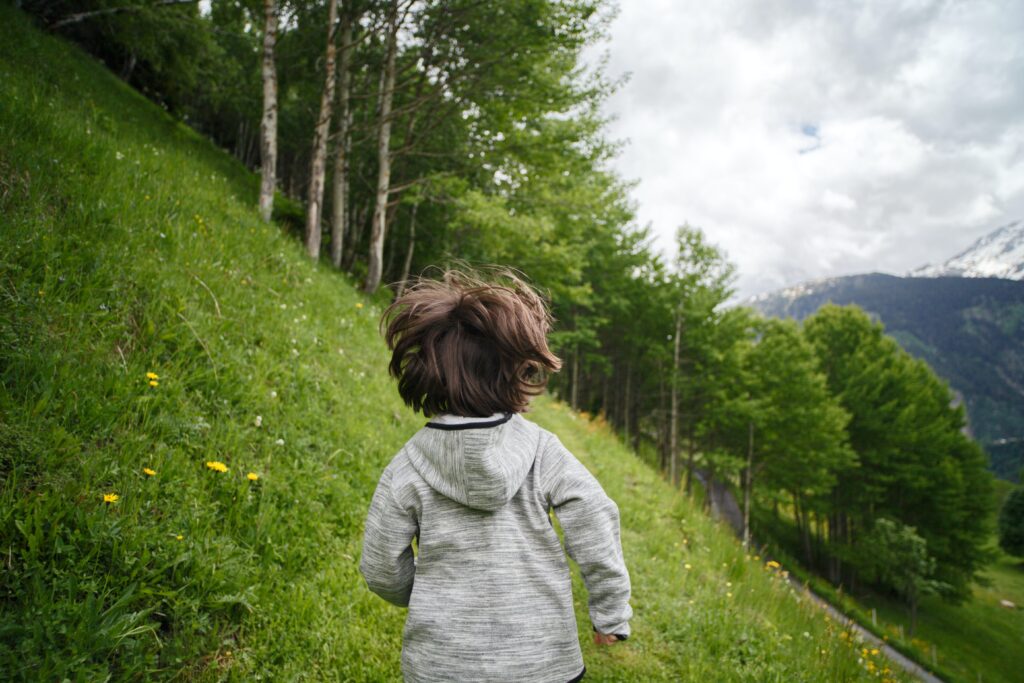Outdoor spaces improve mental and physical health while shaping children for the future
There is a tremendous body of research surrounding the benefits of both structured outdoor education and unstructured outdoor play for children. The positive effects of spending time in nature are far-reaching—from mental and physical health improvements to increased environmental knowledge, nature is a potent fix-it for various health and developmental issues.
Read more about how outdoor learning spaces are important for your child’s health and development:
Improved mental health
Being outside can improve mental health of students through mitigating the effects of stress and anxiety. Studies show that even a brief walk in a park can help regulate the negative symptoms of ADHD, and that time spent outdoors can improve self-confidence, concentration, and pro-social behaviors.
COVID-19 has caused a surge in outdoor activity across communities in the United States. Parks are ideal venues for relaxation and socially distant gatherings and provide much-needed respite during this stressful time.
Parents hoping to add an additional element of outdoor fun for their kids may enjoy creating a nature scavenger hunt or finding one online. Nature scavenger hunts build children’s critical thinking and problem-solving skills and will help your child stay aware of their natural surroundings.
Improved physical health
 Many children in the U.S. are spending very little time outside due to increased technology use and few opportunities for outdoor play. A study conducted in Seattle found that children on average spend 12.6 minutes per day engaged in outdoor activity versus 10.4 sedentary indoor hours per day.
Many children in the U.S. are spending very little time outside due to increased technology use and few opportunities for outdoor play. A study conducted in Seattle found that children on average spend 12.6 minutes per day engaged in outdoor activity versus 10.4 sedentary indoor hours per day.
According to The National Trust, sun exposure can improve eyesight and vitamin D levels, and outdoor play improves spatial awareness and motor skills. Outdoor spaces provide opportunity for exercise, which improves heart health and decreases risk for obesity.
Recognizing that unstructured learning and play is an essential part of childhood, Texas Trees Foundation is creating safe outdoor spaces for students to freely roam and run through its Cool Schools program.
Create environmentally conscious attitudes
Research suggests that early exposure to environmental education fosters respect for nature, and that environmentally conscious behaviors are ingrained at a young age. Furthermore, students can impact their parents’ views of the local environment by sharing environmental knowledge at home and encouraging more time outdoors.
Texas Trees Foundation is constantly researching ways to encourage outdoor education: winding labyrinths, outdoor musical instruments, and amphitheaters are some of the features that are installed on Cool Schools campuses, but every campus park is different.
Visit our website to learn more about how Texas Trees Foundation is impacting future generations by working with local schools to create safe outdoor learning spaces.
